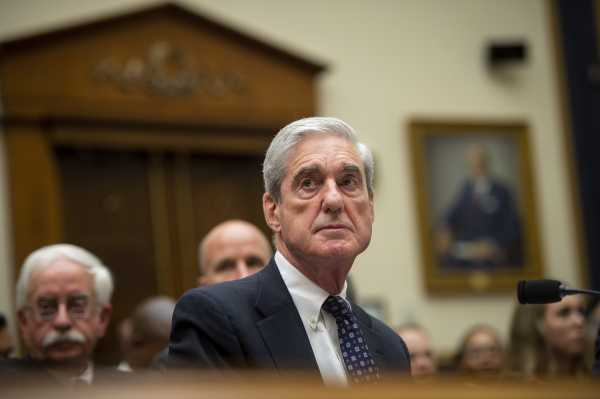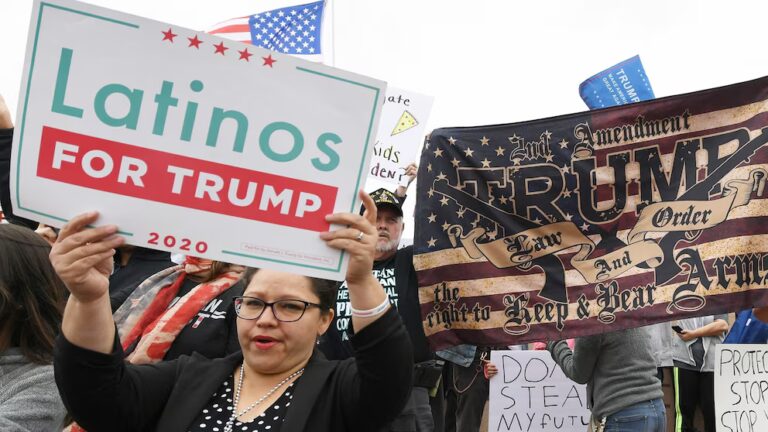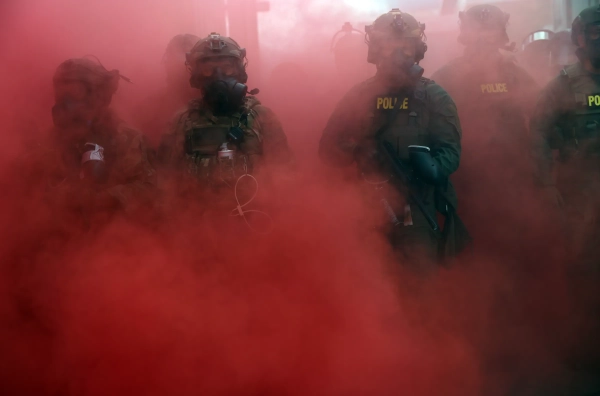
Despite high hopes from congressional Democrats that special counsel Robert Mueller’s testimony would clarify the conclusions of the Mueller report for the American public, new polls show the hearings changed few minds about the report’s contents and that a partisan split remains on questions of impeachment and presidential wrongdoing.
An ABC News/Ipsos poll found that Mueller’s testimony did little to change voters’ minds on the issue of impeaching Trump. In response to the question, “Did Robert Mueller’s testimony make you more or less likely to support the impeachment of Donald Trump?” 47 percent of Americans said hearing from Mueller made no difference.
Although 48 percent of Democrats polled said they were more likely to support impeachment following Mueller’s testimony, just 3 percent of Republicans said the same.
The testimony seemed to convince Republicans that grounds for impeachment do not exist; 42 percent of Republicans said Mueller’s words caused them to be less likely to support impeachment than they were ahead of the testimony. Only 8 percent of Democrats shared this view.
A majority of Republicans — 54 percent — said the hearings didn’t change their views on impeachment at all, however, as did 44 percent of Democrats.
A similar partisan split was found on the issue of foreign election interference. Mueller made it clear during his testimony that Russian interference in elections is a given, saying, “They’re doing it as we sit here, and they expect to do it in the next campaign.”
Overall, voters appeared to take that warning seriously: 54 percent said they do not have any confidence in the US’ capability to defend itself against another electoral attack. But, Republicans and Democrats seem to see the US’ election security very differently; 25 percent of Democrats expressed confidence in US electoral integrity versus the 77 percent of Republicans who felt the country is prepared to combat interference attempts.
Donald Trump has made it clear he sees Mueller’s report as clearing him of any and all wrongdoing; the phrase “no collusion, no obstruction” has become a mantra for the president and his supporters. The report did not absolve Trump, however. On the issue of obstruction Mueller wrote: “If we had confidence after a thorough investigation of the facts that the President clearly did not commit obstruction of justice, we would so state.” He did not so state.
Democrats hoped to make this clear during the testimony, but a new Morning Consult poll suggests they may not have been successful in doing so. That poll found 35 percent of voters believed the special counsel had exonerated the president while 41 percent believed the opposite.
Those numbers broke down starkly along partisan lines, as well, with 58 percent of Republicans believing Mueller exonerated Trump in contrast to the 62 percent of Democrats who believed Trump was not exonerated.
Little new information emerged from the hearing, and perhaps because of that, Americans’ initial impressions of the report seem to have stuck.
The Morning Consult poll found the majority of voters, 49 percent, first learned about the Mueller Report from Attorney General William Barr’s summary of the report in March. In delivering that summary in a live press conference, Barr said the report proved there had been “no collusion” between Trump and Russia while arguing Trump had not committed obstruction.
The polls suggest that for some, and certainly for many Republicans, “no collusion, no obstruction” isn’t just a talking point, but a reality.
Congressional Democrats appear to be just as split on impeachment as the voting public
Following Mueller’s testimony, 100 out of 235 House Democrats said they support impeachment, but party leadership, including Judiciary Committee Chairman Rep. Jerry Nadler and Speaker Nancy Pelosi, have been reluctant to formally begin pursuing impeachment. Instead, they have advocated for continuing to investigate the president.
Part of this ambivalence, according to Vox’s Andrew Prokop, is a question of political strategy:
Given the general public ambivalence about impeachment suggested by the polls, it’s not clear that, politically at least, Democrats would benefit from beginning that process on the whole. To bridge the gap between members of the base that want impeachment and others who aren’t sure it is necessary, many Democratic lawmakers have been calling their ongoing investigations into Trump as an impeachment inquiry of sorts, according to Prokop:
Aside from the politics of impeachment, voters do still have questions about the Trump administration’s ties to Russia. The Morning Consult poll found Democrats may be wise to continue their investigations into the president: Across party lines, 43 percent of registered voters said Russia helped the Trump campaign in 2016, a number up four percentage points since the pollsters asked the same question in February.
And a growing number of voters, 49 percent, also said they believe that Trump tried to obstruct Mueller’s investigation. That number was up five points over the same time period.
Sourse: vox.com






